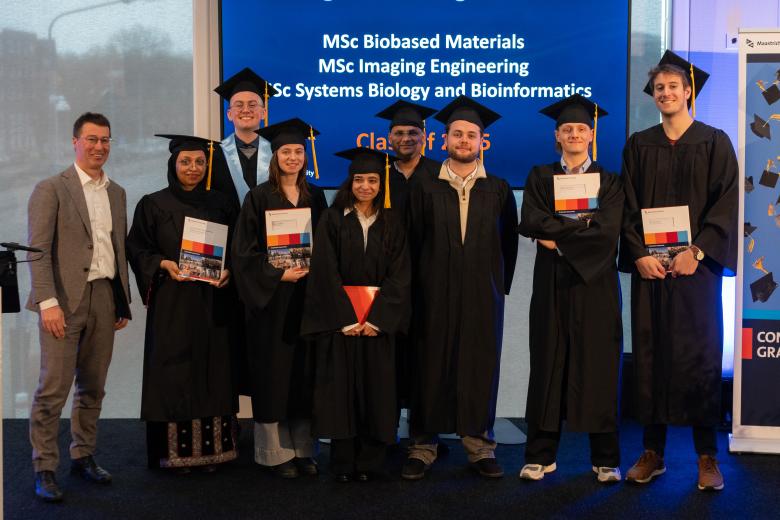ERC Proof of Concept Grant for the development and testing of AI software for lung cancer
The department of Precision Medicine has received a prestigious ERC Proof of Concept grant for the development and implementation of fully automated AI software for fast, accurate detection and volumetric segmentation of lung tumours and lung metastases on CT images. This tool can be used for radiology, radiotherapy and medical oncology applications.
Professor Philippe Lambin, Head of the department, is proud that this prestigious grant has been awarded to his department: “Especially since this is the third ERC and fourth European grant that our new department, which is less than one year old, has received this year. It is the result of a fruitful collaboration with the department of Radiology and Nuclear Medicine”.
The ERC Proof of Concept funding is made available only to those who have already an ERC award and aims to establish proof of concept of an idea that was generated during the course of their ERC-funded project. The funding will cover activities at the very early stage of turning research outputs into a commercial or socially valuable proposition.
“There is a lot of research being undertaken on AI for medicine but very few applications in daily care. We are confident that this grant will help us to implement AI into patientcare.” Said Prof. Lambin.
Summary of the project:
The inaccuracy and inconsistency of state-of-the-art tumour volume detection and segmentation has an adverse influence on patient outcomes. Accurately determining the exact location and volume of tumours is a prerequisite for the detection, segmentation, characterisation and therapy response monitoring for any type of cancer. Today, tumour segmentation is performed manually or semi-automatically in a laborious and time-consuming process that exhibits low accuracy and inconsistency.
This compromises quality of care by limiting the certainty of lesion detection on medical images, hindering the effectivity of radiotherapy and restricting the accuracy of treatment response monitoring. In this ERC PoC project, we introduce fully automated software for fast, accurate, observer independent and reproducible detection and volumetric segmentation of (lung) tumours and metastases on CT images. Through a unique three-step approach, our software demonstrates superior speed, accuracy and robustness of tumour segmentation over both the stateofthe-art as well as published competing solutions for automated tumour segmentation.
Hence, our software has the potential to drastically reduce the adverse impact that inaccurate tumour detection and segmentation currently has on (lung) cancer patient outcomes by: improving the detection of lesions on CT images, increasing the accuracy of radiotherapy treatment to reduce the occurrence of geometric misses, and advance the evaluation of tumour response to treatments through volumetric treatment monitoring. In AUTO.DISTINCT, we will provide technical and commercial proof-of-concept for our novel software. We will solve the remaining technical challenges and develop a user-friendly prototype that can be validated with end users. Moreover, we will develop a business strategy that incorporates all technical, commercial, IPR and regulatory aspects of our invention to ensure successful commercialisation.
Also read
-
Green school playgrounds boost concentration and wellbeing
Children at schools with green playgrounds are better able to concentrate and display more social behaviour. This is the conclusion of a follow-up study within the long-running project The Healthy Primary School of the Future .
-
Reconnecting the brain and body: how to control devices with your thoughts
Can you control a robotic arm with your thoughts? Paul Weger (MHeNs) studies this to give back independence to patients with neurological conditions.
-
Ron Heeren appointed fellow of the Netherlands Academy of Engineering
Professor Ron Heeren, distinguished university professor at Maastricht University (UM) and director of the Maastricht MultiModal Molecular Imaging Institute (M4i), was appointed as a fellow of the Netherlands Academy of Engineering (NAE) on Thursday 11 December.